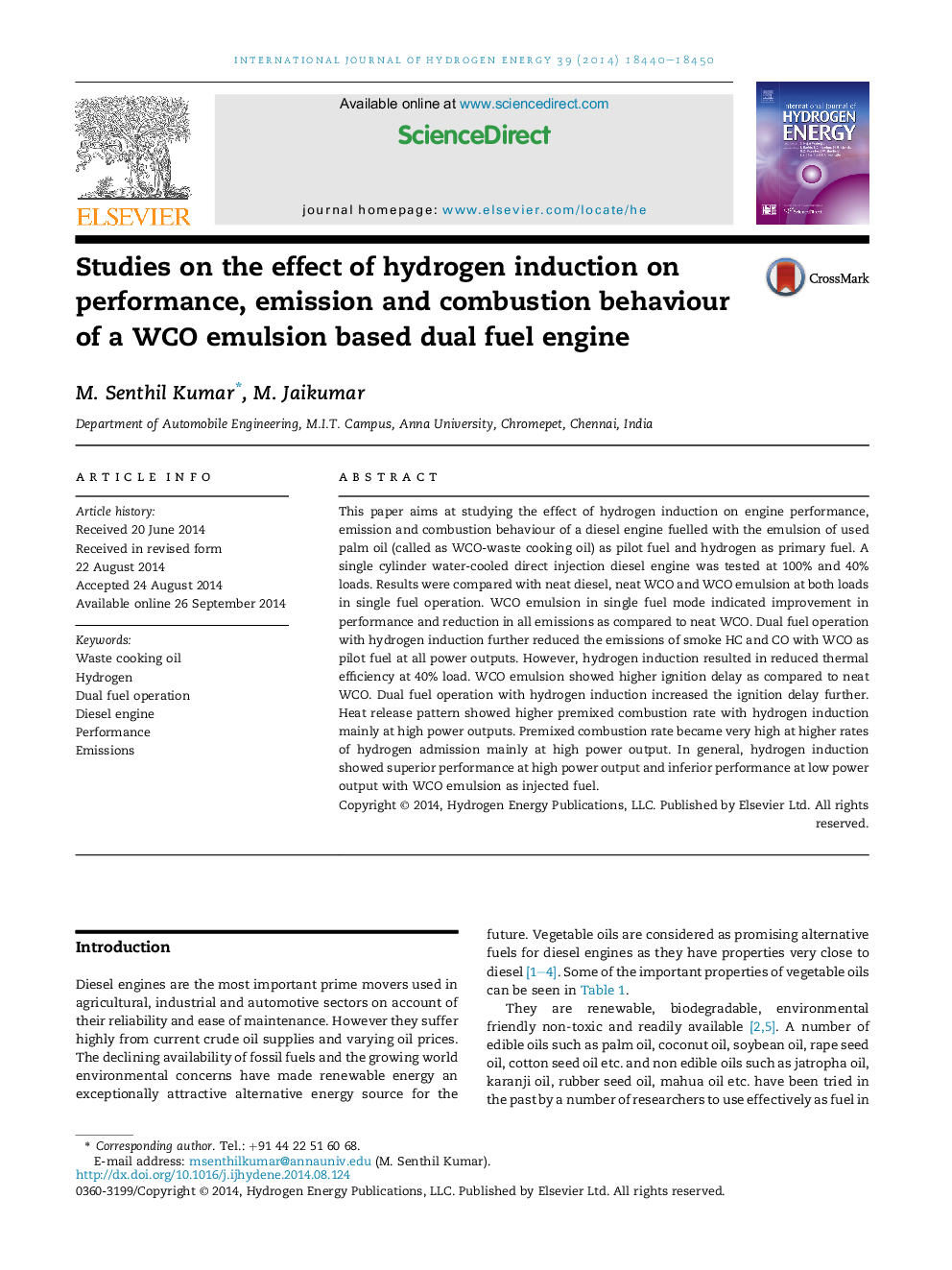| Article ID | Journal | Published Year | Pages | File Type |
|---|---|---|---|---|
| 1280855 | International Journal of Hydrogen Energy | 2014 | 11 Pages |
•Performance of a WCO emulsion based CI engine was studied using H2 induction.•WCO emulsion resulted in improved performance with H2 induction.•Smoke was reduced significantly in dual fuel operation with H2 induction.•HC and CO were reduced considerably with H2 induction as compared to WCO emulsion.•Ignition delay was noted as higher with WCO emulsion with H2 induction.
This paper aims at studying the effect of hydrogen induction on engine performance, emission and combustion behaviour of a diesel engine fuelled with the emulsion of used palm oil (called as WCO-waste cooking oil) as pilot fuel and hydrogen as primary fuel. A single cylinder water-cooled direct injection diesel engine was tested at 100% and 40% loads. Results were compared with neat diesel, neat WCO and WCO emulsion at both loads in single fuel operation. WCO emulsion in single fuel mode indicated improvement in performance and reduction in all emissions as compared to neat WCO. Dual fuel operation with hydrogen induction further reduced the emissions of smoke HC and CO with WCO as pilot fuel at all power outputs. However, hydrogen induction resulted in reduced thermal efficiency at 40% load. WCO emulsion showed higher ignition delay as compared to neat WCO. Dual fuel operation with hydrogen induction increased the ignition delay further. Heat release pattern showed higher premixed combustion rate with hydrogen induction mainly at high power outputs. Premixed combustion rate became very high at higher rates of hydrogen admission mainly at high power output. In general, hydrogen induction showed superior performance at high power output and inferior performance at low power output with WCO emulsion as injected fuel.
